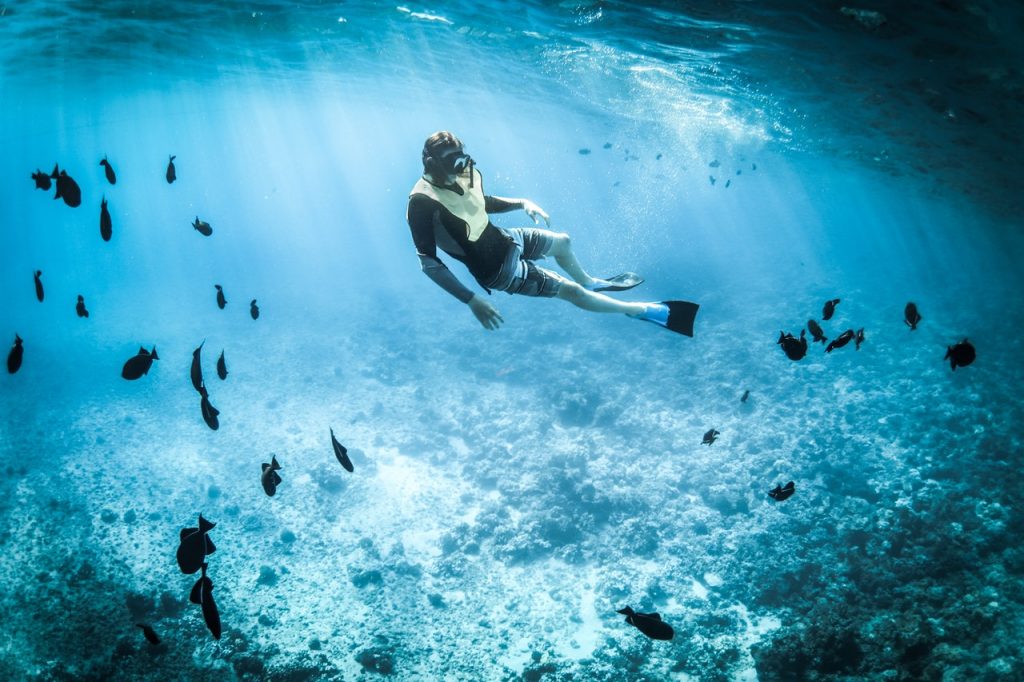If you have recently gotten into diving or are planning to pick it up as a new pursuit, you may be hesitant due to some limitations. How can you practice diving when most of the time, you do not have access to the sea or even a pool?
A common misconception about diving is that you always need to be in the water to get better at it. Of course, experience swimming in the open water is a must, but that is not where all your improvement takes place. There are numerous ways to hone your diving skills outside of the ocean.
While you are planning your next diving trip, these are excellent practices to make a habit of at home.
Familiarize Yourself with Your Gear
Diving, especially scuba diving, involves the use of several equipment pieces to get ready for a dive. It is best for your safety to know how to put the gear together on your own. If you have your own equipment at home, take some time out of your week to practice wearing your gear to improve efficiency for the next diving trip.
In addition to putting your gear on, study how to safely remove your suit and disassemble your equipment. If you do not have full diving gear, consider purchasing your own.
Having your own mask, suit, fins, dive computer, and others helps assure you that the gear you are bringing with you into the water is in mint condition. For you to stay safe during night dives, a dive torch will keep your path lit well. A diving watch is also an excellent investment to help you keep track of time during your dives.
Learn to Navigate Better
Navigation skills are a convenient life skill, whether you are underwater or on the ground. However, navigating while diving looks and feels different from following map apps when driving on roads.
For one, the ocean does not have paved roads and traffic signs to guide your steps. There are also no buildings to stand as landmarks in case you get lost. Navigation is a vital skill underwater as you need to rely on this to assure you that you still know how to trace your way back to your boat.
To practice, familiarize yourself with the use of a compass. When you are still new to diving, a straightforward underwater compass is best because you do not need to recalibrate them. Go out to an open space in your home, such as your lawn, and practice using it regularly.
Stay Fit and Healthy
Regular exercise is a great way to ensure your body is in excellent condition for your next diving adventure. It is also generally a good habit to keep you strong and healthy.
-
Exercise to maintain good posture
Scuba diving requires you to carry a heavy tank on your back while swimming. Poor posture puts unnecessary stress on your back that hinders your performance underwater. It is also a major source of backaches and neck and shoulder pain.
On some of your workout days, focus on strengthening your core. These exercises can release the tension on your spine and help loosen up your muscles.
-
Make cardiovascular exercises a habit
Your stamina is essential when diving. Its limits dictate how long you can last underwater. Have cardio-focused days in your workout routine to keep you in good shape while reducing the risk for heart disease, diabetes, and other illnesses. Cardio workouts also reduce joint pain.
The Mayo Clinic recommends three parts to a cardio workout. First is a warm-up, such as brisk walking, to prepare you for higher intensity movement. Conditioning comes next to help build your endurance. Finally, end with a cool-down session to ease your muscles out of the exercise.
-
Improve your breathing technique
Aside from stamina, your breathing technique contributes to your ability to keep up with your buddies during a diving trip. Breathing with your scuba diving gear underwater requires getting used to, so take time to practice your breathing even outside the ocean.
Breathing underwater requires you to take in a deep breath, which you then slowly and steadily release. Do exercises that push you to pay attention to your breathing. Yoga is one activity that makes you pay attention to how you breathe while staying present in the poses you are doing.
Improving your diving skills involves a lot of out-of-water activities that also enhance the quality of your life. Practice these regularly to be on your A-game for the next dive.




